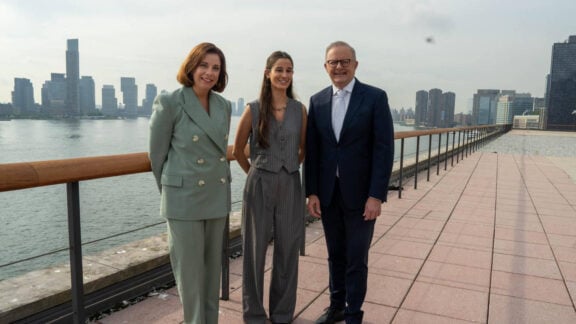In a recent article “What the Diaspora Goes Through to Get a Greek Passport” by the Greek-Australian lawyer Yannis Tripidakis, in Neos Kosmos on November 19, the expert in Diaspora issues said the Greek government’s decision to abolish the right for the Special Registry to issue passports in 2021 has added pressure on overwhelmed Greek Consulates.
Neos Kosmos raised some questions for Tripidakis to understand what he proposes for a better and faster service for expatriates under the present circumstances.
In 2022, you asked the Greek State Minister Makis Voridis about the issue of Greek citizens living abroad obtaining a Greek passport.
Last year, I asked the (then) Minister responsible, Makis Voridis why the acquisition of a Greek passport by Australian-born children and grandchildren has become more difficult as time goes on.
Until 2022, births, marriages and deaths of Greeks abroad were registered either at the Special Registry of Athens (using a lawyer) or at the local Consulates; the law has now changed, and the scope of the Special Registry has been limited, and directly the declarations are transferred only to the local Consulates.
Unfortunately, this new law fails to consider many problematic factors, such as:
(a) the major understaffing of Greek Consulates and the long delays resulting from the lack of staff.
Indicative of this is that Diaspora appointments in the Greek Consulate in Melbourne extend to the end of 2025.
b) the continuous increase in the Consulates’ backlog despite a significant staff shortage.
c) cases that need immediate processing and cannot wait for Consulate times. (e.g., legal obligation to declare death and submit an inheritance tax return or disclaimer within one year, publication of a will, issuance of a certificate of next of kin, registration of real estate in the Land Registry, revocation of usufruct, declarations of elderly, or seriously ill persons)
(d) impossibility of being present in person and the need to use a proxy.
What did you ask Mr. Voridis to do regarding these issues?
The latest amendments are on the whole welcome, however they create legal, economic and social deadlocks for Greek Australians, they need immediate revision, at least until all Greek Consulates, without exception, can cope with the volume of work within a reasonable time, which is what is required, both for the Ministry and for the Diaspora community.
I have recently reiterated the same to the Ministry of Foreign Affairs and the Ministry of Interior.

What worries you about the changes?
Greek Australians are being discouraged from “becoming” officially Greek because of the unpleasant social, legal, and economic consequences for them and the international impact this has on Greece, which is shrinking and aging its population as it goes along.
*The tendency of younger generations to invest, educate, live, or do business or family business in Greece is decreasing.
*Forced to “break the law” as applicants cannot adequately meet the deadlines set by other Greek laws.
*The possibility of being represented by a lawyer in a difficult, in what can be a linguistically, bureaucratically administrative procedure, is implicitly abolished.
That the right of the Diaspora to vote may be, in effect, diminished due to the administrative complexities of securing citizenship.
The representation of the Diaspora in Greek collective bodies and the Greek Parliament may be reduced if not eliminated. In the Greek Parliament, the issues of the Diaspora must be heard. The worst thing is that for many Greek Australians, the image of the Greek State is “eroding”.
What do you propose?
I propose that the laws be amended so that the Special Registry of Athens, an already well-staffed Service with knowledge of the subject, has concurrent jurisdiction with the Greek Consulates in all cases of registration of deeds. In other words, the Consulates and the interested party should be able to submit their documents, either in person or through a lawyer’s proxy, for the acquisition of a Greek passport either at the Consulate or at the Special Registry of Athens, where the service is almost immediate – since the Diaspora travel to Greece annually. The Greek state should create a pathway to relieve the overburdened Consulates, such as the one in Melbourne, without an additional burden on the state budget.
Finally, what can the Diaspora do?
The Diaspora should apply pressure in writing – through their associations, organisations, communities, and federations – to the Greek Ministry of Interior calling for an amendment of this law. Whenever a Greek politician visits Australia, regardless of party, the issue of securing citizenship should be put on the agenda as the main issue.








